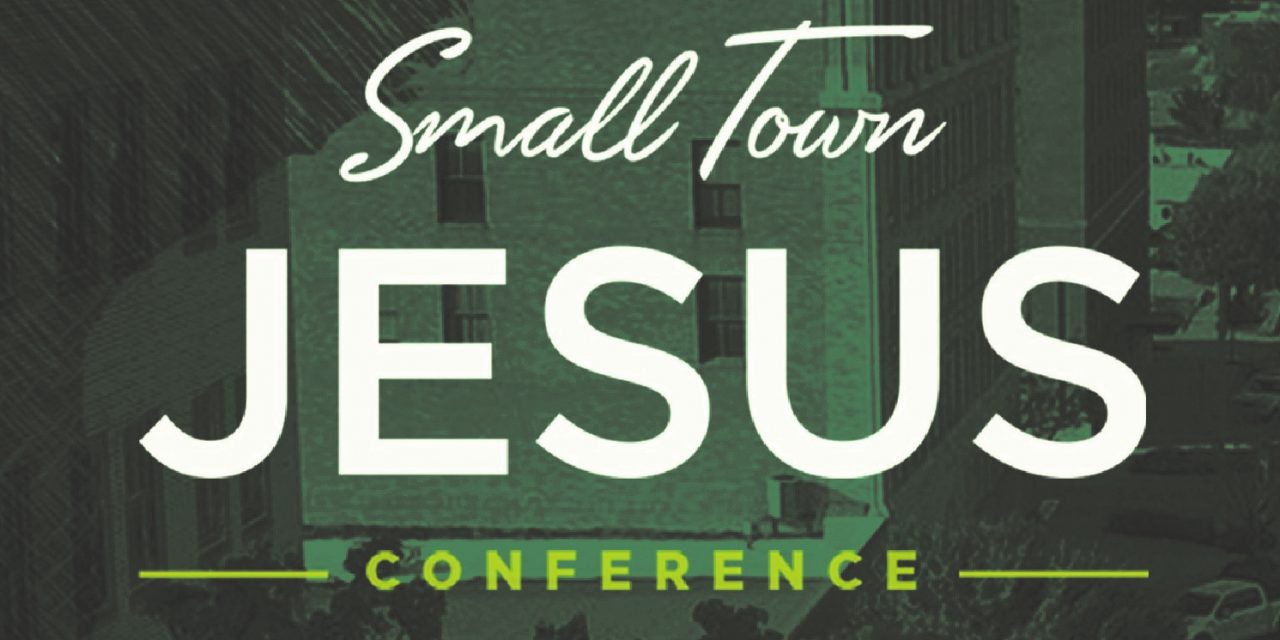Small town ministry is both beautiful and vital, yet during this last season, it has been unusually challenging, exhausting and lonely. Smaller cities, small towns and rural places bring both incredible opportunities for Gospel ministry and unique challenges.
This is why Shawnee, Frontline is hosting the Small Town Jesus Conference, Oct. 8-9.
I’d like to invite you to join me and a bunch of my friends who lead churches in often over-looked places, as we consider together how the Gospel sustains, preserves and empowers us through seasons of challenge, while we pray for renewal, refreshing and grace.
All of us have been pressed under the weight of pandemic responses, political divisions, cultural anxieties and relational fracturing. We have seen people leave our churches over decisions we have had to make, performed funerals over zoom, counseled people through rampant addiction and despair, fought for unity when it seemed in short supply and felt the stinging loneliness that comes from leading in times of crisis. And all of this has impacted pastors and ministry leaders in small towns in unique ways.
Simply put, many of us are weary. We need rest and renewal physically, emotionally, relationally, and spiritually. We need to be reminded of how the Gospel sustains us in all things.
We need Gospel Resiliency.
Gospel resiliency doesn’t come through tips, tricks or more data. We won’t be sustained through dark and difficult days by right strategic thinking, sound organizational processes or even correct doctrine. Instead, we need three things to grow in Gospel resiliency: calling, communion and counter-formation.
Calling. You are first called to Jesus, not initially to a place, church or vocation. Your primary identity is not as a minister, pastor, deacon or leader. Before anything else, you are an adopted child of God, loved by the one whose name is Love.
It is only from this calling that we can inhabit our calling to a place. We were never called to be the hero of our town, or to a place of prominence, recognition or prestige. We have been called to share what we have received with the people God has put in our lives. Let us stop looking longingly over the fence at someone else’s calling. Instead, let’s allow God’s calling of us lead to a fresh vision for the place to which God has called us.
Communion. There is a fascinating phrase in 2 Timothy that I think is instructive for us as Gospel ministers in our current moment: “May the Lord grant mercy to the household of Onesiphorus, for he often refreshed me and was not ashamed of my chains, but when he arrived in Rome he searched for me earnestly and found me…” (2 Tim 1:16-17).
Paul was suffering alone in a Roman prison, with little idea of what lay ahead in ministry. Yet, we see here that Paul’s relational communion with Onesiphorus led Paul into deeper communion with his Lord. Paul was facing intense challenges, but the grace and power of God showed up through the presence, encouragement and affirmation of a faithful brother. Gospel resiliency often comes in deep dependence on the grace of God through spiritual communion with other faithful brothers and sisters.
Counter-Formation. In this current cultural moment, forces of deformation (consumerism, autonomy, disunity, loss of truth, malformed sexuality, etc.) seem to be persuading many people in our churches faster than we can disciple them in the ways of Jesus.
This deformation must be met with intentional counter-formation, both for us as leaders and for the churches we lead. We need a counter-formation that only the Gospel can bring, one that reminds us of truths we have neglected, hopes that have waned, and spiritual practices that bring us back to the simple call to follow Jesus.
You are invited to join us as we gather with other pastors and leaders, serving in smaller contexts to see with fresh eyes how the Gospel can empower us and cultivate resiliency in us and in the churches we serve.
Register today at smalltownjesusok.com, and join us, Oct. 8-9, for the 2021 Small Town Jesus Conference.




